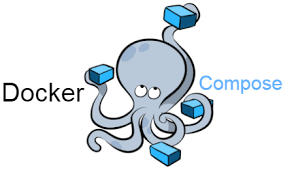1. Introduction
Optimizing your Docker Compose workflow is crucial for efficient development, testing, and deployment of containerized applications. This chapter outlines best practices that help streamline your Docker Compose projects, enhance performance, and ensure maintainability throughout the lifecycle of your applications.
2. Organizing Your Docker Compose Project
A well-organized project structure improves clarity and maintainability. Consider the following practices:
2.1 Directory Structure
Organize your project with a clear directory structure. For example:
myapp/
|-- docker-compose.yml
|-- services/
| |-- web/
| |-- Dockerfile
| |-- ...
| |-- database/
| |-- Dockerfile
| |-- ...
|-- volumes/
|-- ...
Separate services into individual directories, each containing its Dockerfile and related files.
2.2 Compose File Naming
Use meaningful names for your Docker Compose files. For different environments or configurations, consider using override files (e.g., docker-compose.override.yml) rather than creating multiple base files.
docker-compose.yml docker-compose.override.yml 3. Service Configuration Best Practices
Optimize your service configurations for better performance and maintainability:
3.1 Version Specification
Specify the Docker Compose file version explicitly to ensure compatibility and prevent unexpected behavior.
version: "3.8"3.2 Image Tagging
Always tag your Docker images with a specific version or commit hash instead of using "latest" to avoid unintended updates.
services:
web:
image: myapp:1.0
3.3 Use Environment Variables
Leverage environment variables for dynamic configurations, making it easier to adapt your services to different environments.
services:
web:
image: nginx:latest
environment:
- NGINX_PORT=8080
4. Network Configuration Best Practices
Efficiently manage network configurations to ensure proper communication between services:
4.1 Custom Networks
Use custom networks to isolate services and enhance security. Explicitly define networks in your Docker Compose file.
networks:
backend:
frontend:
4.2 Service Dependencies
Declare dependencies between services using the depends_on directive to ensure services start in the correct order.
services:
web:
image: nginx:latest
depends_on:
- database
5. Volume Management Best Practices
Effectively manage volumes for data persistence and seamless communication between containers:
5.1 Named Volumes
Use named volumes for data persistence, making it easier to manage and backup data.
services:
database:
image: mysql:latest
volumes:
- db_data:/var/lib/mysql
volumes:
db_data:
5.2 Bind Mounts
Prefer bind mounts for development environments, allowing for live code reloading.
services:
web:
image: myapp:latest
volumes:
- ./app:/app
6. Docker Compose Commands
Optimize the use of Docker Compose commands for an efficient development workflow:
6.1 Build Only What's Necessary
Use the --build option selectively to rebuild only the services that have changes.
docker-compose up --build web 6.2 Remove Orphaned Resources
Remove unused volumes, networks, and containers to free up resources and avoid conflicts.
docker-compose down --volumes --remove-orphans 7. Conclusion
Adopting best practices for Docker Compose contributes to a smoother development and deployment experience. By organizing your project effectively, configuring services optimally, and managing networks and volumes efficiently, you can ensure that your containerized applications are scalable, maintainable, and performant. As you continue working with Docker Compose, consider the specific needs and nuances of your projects, and tailor these best practices accordingly. In the following chapters, we'll explore advanced container networking, Dockerfile best practices, and other topics to further enhance your expertise in containerization.
